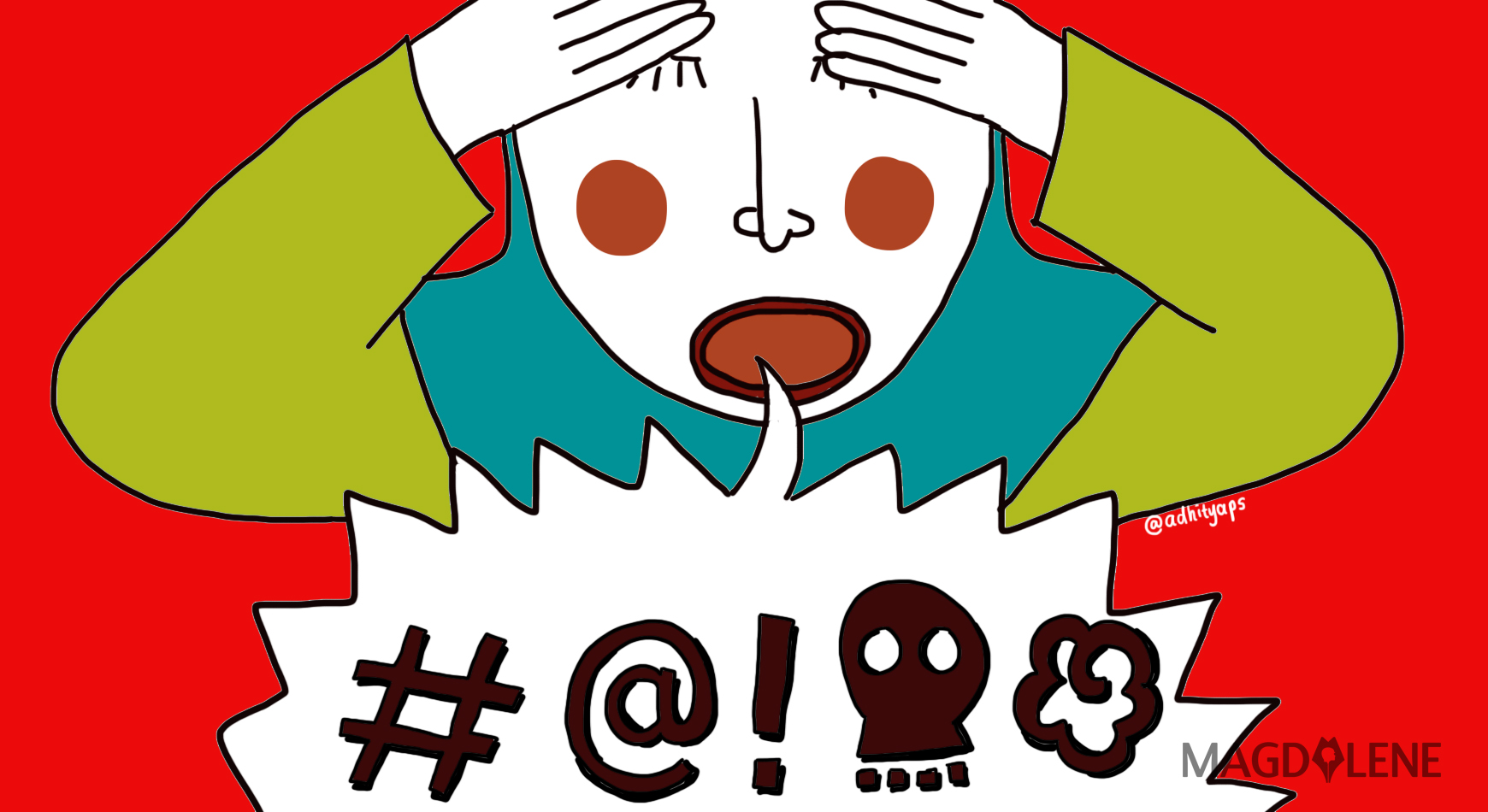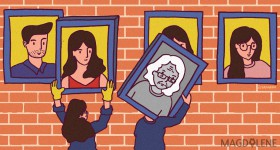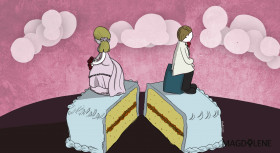My sister, a supervisor at a media outlet here in Jakarta, can be considered a good, ordinary Muslim. She performs the shalat prayer – although not always five times a day – she neither drinks alcohol nor eats pork, she fasts during Ramadan, and she firmly believes in the Quran. Although she had once thought about it, she doesn’t wear hijab, having decided that she has the right to dress properly as she wants, rather than having to protect men’s mischievous gaze.
Interestingly, she accepts me for who I am, an agnostic lesbian with angry views toward society, without ever judging me. She was the first person I came out to about eight years ago, when I couldn’t stand to keep silent any longer. Her acceptance encouraged me to come out further to my other siblings, and to close friends and colleagues. Her unwavering faith prevents me from hating Islam.
As news frenzy on LGBT (lesbian, gay, bisexual and transgender) stormed the social media these last few weeks, with horror we both found out that our cousins had been actively posting homophobic statuses and even hate speeches. These cousins – so-called devout Muslims and wearing hijab, of course – seem so proud of showing off their piety by way of calling for their fellow Muslims to condemn LGBT people.
Not satisfied with just preaching on social media, our cousins have also taken to instant messaging apps to spread their hateful messages.
Since I do not join my big family’s messenger group, nothing they say affects me. But my sister became the one who bears the brunt, especially since she shows open support for LGBT people on her social media—although never mentioning me, as I’m not fully out in public.
Indeed, I realize, just like our presidential election back in 2014, LGBT issue has divided the nation into two, this time in unproportional ratio, with the majority of people being irrationally against LGBT. And just like before, lies spread like fire to fuel hatred of the unknown. Arguments by LGBT opponents are often based on misconceptions, outdated views, or plain homophobic, visceral hatred.
My cousins, on the one hand, represent the majority of Indonesians, who panicked after suddenly being exposed to LGBT issues. And on the other hand, my sister represents the minority of open minded and progressive people with, I believe, no less understanding of religious teachings.
At one point she said this to me in disbelief: “We read the same Book. I have no idea how Islam can be this fragmented.”
My sister doesn’t identify herself as a liberal Muslim, nor does she affiliate herself with any Islamic political parties, although she admires Gus Dur. She doesn’t like to watch fiery ustad (Islamic preacher) on TV and she thinks that political leaders put on religious image just to get voted. However, I know she is pretty informed about Islam since she reads many books about Muhammad and the history of Islam.
It is disheartening that in the biggest Muslim nation on earth today, there aren’t many influential voices of ulemas in the mass media evoking critical thinking and the love of knowledge.
Upon deeper contemplation, I believe that this division of Indonesian Islamic views on homosexuality reflects a gap in awareness and sensitivity. Incidentally, my cousins, who are educated and economically empowered, are also the kind of people who are quick to condemn workers’ protests on the streets (because they create traffic congestion) and who do not have any curiosity about Indonesian history (they simply do not read).
They also do not mingle with other social groups but their own little clicks, and they do not feel troubled by the fact that we have mutual relatives living in poverty, believing that God has given us each our fate. In short, whenever people say “kelas menengah ngehe” (the awful middle class), they come to my mind.
They also remind me of a story told to my sister by her professor of politics back in campus. This professor says that in a poll in the 1990s on the enforcement of Islamic law (sharia) in Indonesia, the majority of respondents agree. However, when further asked about the details of the law, such as cutting the hands for stealing, those same respondents disagree. From this, I wonder whether many Indonesian Muslims simply long for sharia without really understanding it.
If indeed my cousins represent the majority of Indonesians who hate LGBT, it’s actually easy to see: they are simply ignorant people. But considering that those kinds of people probably make up the majority of Indonesians, it is worrying indeed. How can we deal with social, political, cultural, and environmental issues of the 21st century with this kind of society? Aren’t they, in fact, one of the nation’s problems?
Ironically, in Islam, seeking knowledge and battling ignorance are actually encouraged. It is said that Prophet Muhammad preached about the importance of knowledge, regardless time, place, gender, and source.
"In the creation of the heavens and the earth the alternation of the night and the day, in the ships that sail in the sea with their load…. in the rain which Allah sends down from the sky and thus revives the earth after its death; and then He spread in all kinds of animals; in the changing of the winds: in the clouds which have been left suspending between the heaven and the earth – in all these are clear signs for the people who understand.” (2: 164)
"Allah will raise up, to (suitable) ranks and (degrees), those of you who believe and who have been granted knowledge. And Allah is well-acquainted with all you do." (58: 11)
And of course, the first verses itself begins with “Read. Read in the name of thy Lord who created (...).” (96: 1-2)
It is disheartening that in the biggest Muslim nation on earth today, there aren’t many influential voices of ulemas in the mass media evoking critical thinking and the love of knowledge. Instead, religious leaders’ uninformed opinions worsen the epidemic of ignorance and deepen the hatred of minority groups such as LGBT people.
Samara is a lesbian woman with a penchant for doing nothing. She works as a freelancer to perpetuate her slow-paced lifestyle.








Comments